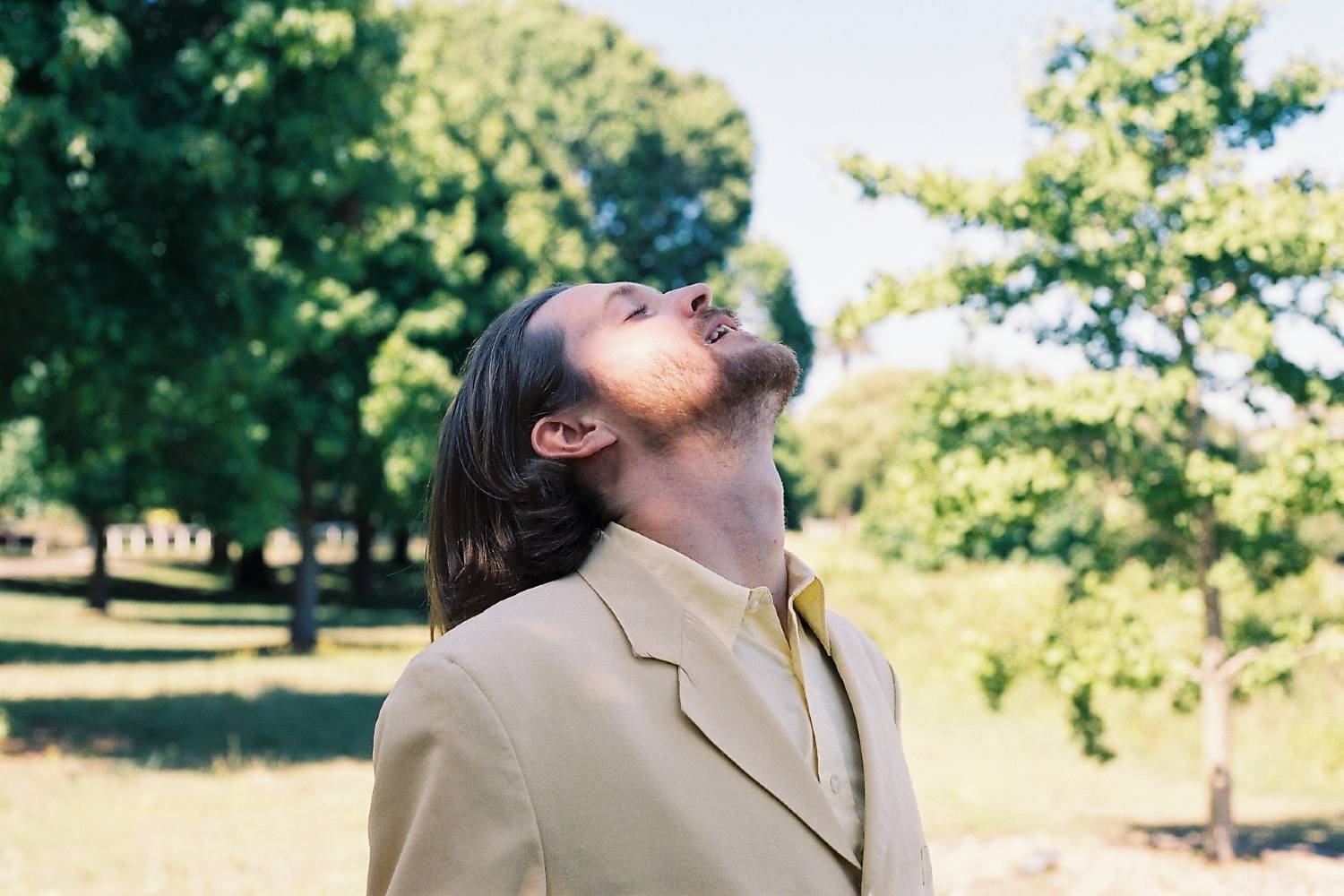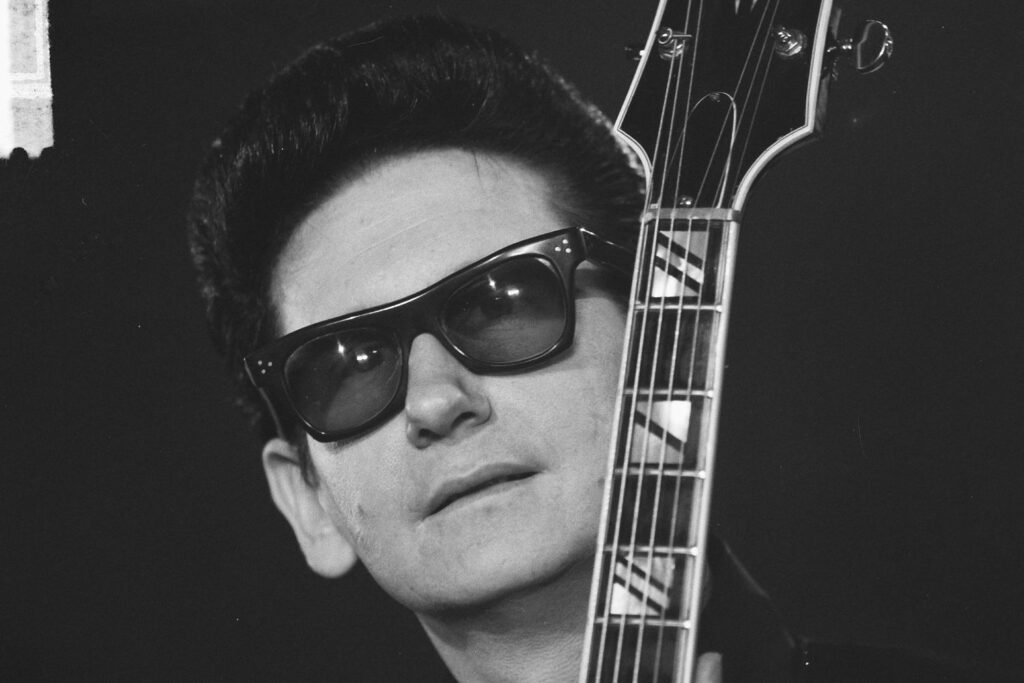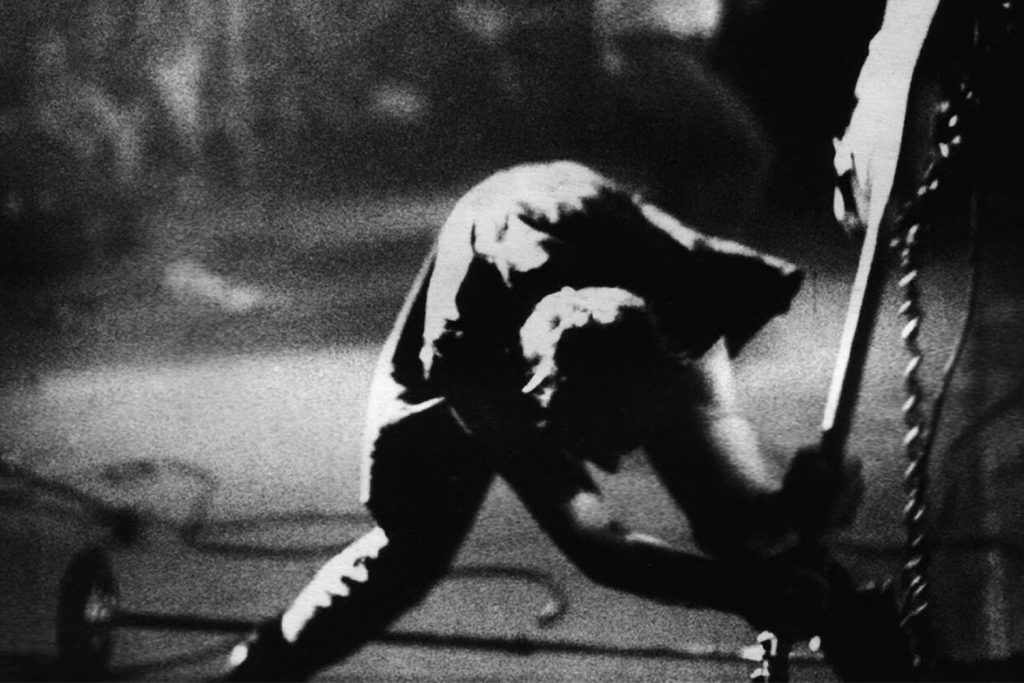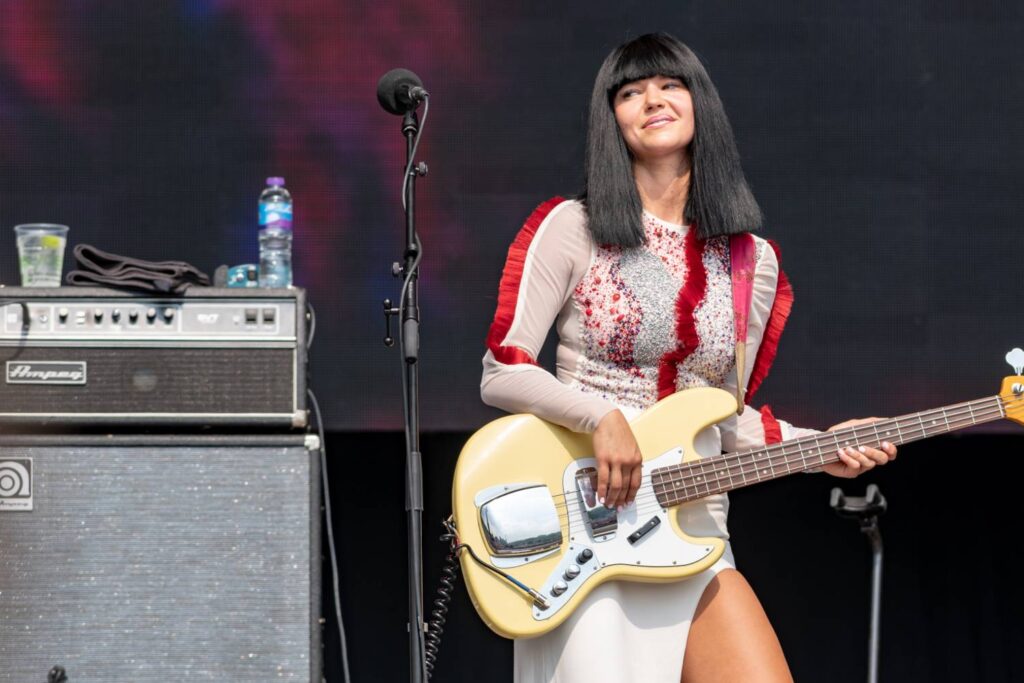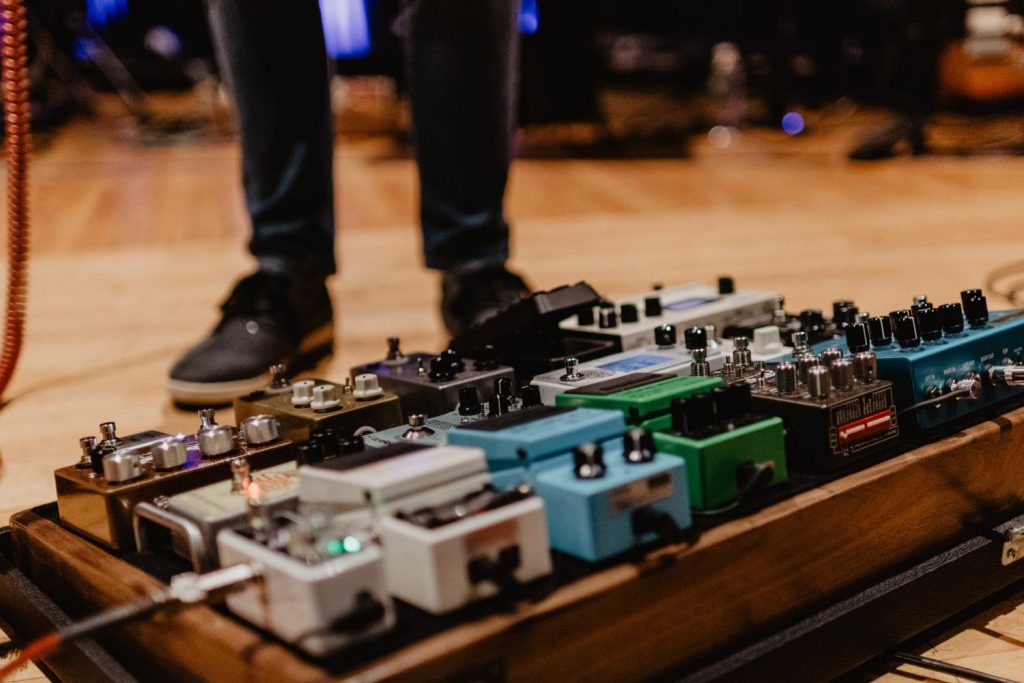"Because I produce my own music, I have the luxury of allowing a LOT of time for songs to breathe and grow. This is not always a good thing, and presents unique challenges (perfectionism, demo-itis, over-cooking) but it’s the best way for me."
Glenn Hopper has an EP out today, Something About The Weather, and it’s a release comprised of his own songs after finding success producing for the likes of Lil Nas X and Mary J Blige. His own brand of up-beat, indie, happy-go-lucky pop is unique, having found his own voice while understanding how to craft songs for others.
The lead single “Easy Way Out” has been available for some time, and ahead of the release of the full EP, we spoke to Glenn about the EP, his creative process and how it ultimately culminated in this body of work.
Read up on all the latest features and columns here.
Glenn, thanks for taking the time. We’ve been loving “Easy Way Out”, how did writing for this one specifically begin?
This one began on my old piano at my mum’s house in the Blue Mountains. Every few years I do a silent meditation retreat up there where you don’t talk for 10 days. Ordinarily my life is very stimulating, as most of our lives are these days, so I find myself in a very special mindset after 10 days of not listening to or playing any music.
I usually find a really interesting idea comes out the first time I sit back down at the piano after one of these retreats. This was the case with “Easy Way Out”, the whole intro chord progression which is the basis of the song came out in one go after a retreat about three years ago. Over the next few years I would play the chords and see if any melodies come through but nothing did until around a year and a half later, back at that same piano at mum’s place, when I started singing the verse melody which came out of my mouth with the phrase ‘there’s an easy way out’. I kept tugging at that lyrical idea and it led to the rest of the song.
Is this how songs normally begin for you?
Yes. Usually with my songs I start with a musical idea and then sit on it for a long time, until the melody is so ready that it just kinda falls out of my mouth while I’m playing it. Often the story of the melody is so ripe by this point that large chunks of lyrics come out with the melody too. It’s a bit of a slow cook method of writing, it was probably 3 years between the first piano idea and the completed song, however I kinda do this in a rotation with a bunch of songs I’m working on so there is a good flow of pieces being finished while others are being started or in the slow cooker. Sometimes, thankfully, songs come very fast too but usually it’s the long way around.
How do you define yourself?
I don’t really want to have too many slashes. I write songs, I record, I produce, I play live, I teach. I think musician or ‘music maker’ sums that all up pretty well.
How do you feel your production and songwriting work for others influences your own work?
One of the main things that I have been inspired by in all my collaborative work writing with and for other artists is seeing how decisions get made. When I am working on my own it’s a bit hard to keep track of what is happening and how long things take and how many times I go back and forth, am undone by doubt et cetera…
With other people I notice, when they are confident, they make decisions very easily and with a sense of lightness that seems to come from a healthy amount of self-belief, or pure excitement about an idea. Most of the time, however, most people find it very hard to be decisive. ‘What if this isn’t cool or good enough? Is it? Does this vocal take suck or is it the best thing I’ve ever done?’
Most of my role as a producer/writer for others is listening and saying ‘yes it’s good, it’s actually really good let’s do it’. Seeing how the artists or the person in the eye of the storm can doubt a great idea makes me feel like, when I am doubting my own ideas, maybe they are actually good and my own perception is being influenced by self-criticism that doesn’t actually have anything to do with the idea itself. Because of this I generally think that I can add 20% positive value to how I feel about an idea of mine. 35% if I am tired (because my self-criticism is worse then). This means, If I think an idea is only half good, maybe it’s more like three quarters good, and with a bit of work it could be fully good!
How finished are your songs when you hit the studio? Do you like to leave room for studio magic or are you pretty steadfast in your demos?
I generally don’t go beyond very rough voice memos until the song is completely written and I’ve played and sung it enough on whatever instrument I wrote it on (piano or guitar), to feel comfortable singing it and comfortable in the structure and arrangement. I want to let it settle, and be really comfortable with the decision about key and tempo. Then I’ll start to demo in my studio and build it up from there, slowly replacing and re-tracking the parts until it’s done. The demo in Ableton slowly becomes the finished song, I don’t really finish one and then start the other.
This was the case with all the songs on the EP, especially “Just For Now” and “The Well” which morphed and changed over 8-10 years before arriving in their current versions. One song on the EP that was finished much quicker was “Heaven Didn’t Know”, which I wrote in a day and then recorded in my apartment. This was the first time I had COVID so I was stuck at home without any gear, and I ended up getting so bored that I moved through the writing and demoing stages very quickly. Because of this I ended up using production techniques like pitching, warping, 808s and programmed drums that are more from my production/writing work. Moving a bit faster and letting the writing bleed into the production and recording was really exciting for me and I am thinking that is how I want to approach my next project.
How does your workflow change when writing for yourself versus for/with a client in the room?
Everything I mentioned above is very different to working with artists. Because I produce my own music, I have the luxury of allowing a LOT of time for songs to breathe and grow. This is not always a good thing, and presents unique challenges (perfectionism, demo-itis, over-cooking) but it’s the best way for me.
When I write with others, the song is written from scratch and demo’d by the end of the first day. This is something I love about collaborating, it forces me to work with people in a way that is very exciting and immediate, and see that great ideas can come from a more deliberate form of creativity. As I am usually the supportive one in the creative dynamic, I find it quite inspiring to prompt people to come up with the next line, the next melody, to sharpen and shape things and to see how it can all come together in one go. Very fun.
Is there a piece of gear you find yourself reaching for no matter the session?
Not really. I rotate around a pool of plugins and gear, I think variety keeps a sense of play and surprise in creating music for me. Probably the most used tool is the warp function in Ableton, pitching or time stretching is a big part of any prod I do.
Thanks again! As closer, have you got any stories you can share from making Something About the Weather?
I guess I could talk about doing the vocals for “Easy Way Out”. This is one instance where producing myself and allowing a long time to do things became more of a challenge than a luxury. I went crazzzzzzyyy tracking those vocals.
I thought it was such an easy song to sing, I kind of wrote it to sing easy, but something shifted by the time I started tracking and I spent days, like maybe 4 whole days just doing the vocal again and again and again and again. I was having my 29th birthday party on the terrace in the building where my studio was, and up until the late arvo when people were arriving I was still tracking it again and again and again. I couldn’t be satisfied, I think this maybe where I got my 20-30% rule from, because I ended up just having to comp something together from all these takes which I thought was ok, and then after a few weeks and the dust settled I looked back and was like ‘oh, it’s actually pretty good! What was I worrying about?’. There’s no limit to how deep self doubt can go if you give it enough time and ammunition. Next time I do vocals I will be trying it with someone I trust hitting the record button.
Keep up with Glenn here.
